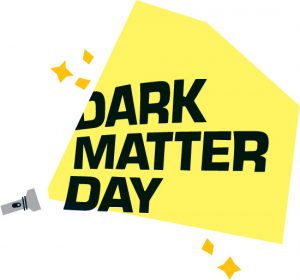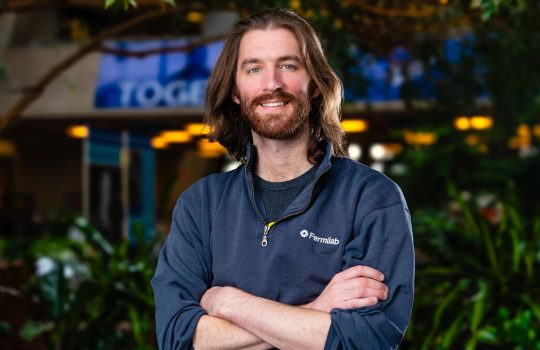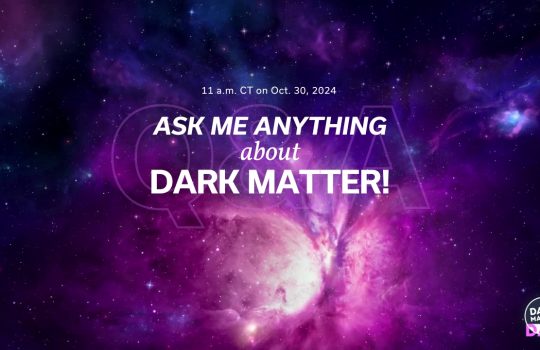This press release was originally published by the Interactions collaboration earlier this month.
Dark Matter Day returns for a second year, giving people all over the world the opportunity to celebrate Halloween in a different way. A series of Dark Matter Day events held in person and online throughout the day on Oct. 31 means that everyone has the opportunity to get involved. Whether you want to host an event, make Dark Matter Day part of an existing event you are involved in, or simply want to gather your friends to watch our live events, there is something for you
The goal of Dark Matter Day is to highlight the global search for the mysterious and as-yet-undetectable substance that, together with dark energy, makes up about 95 percent of the mass and energy in our universe. Dark matter is everywhere, and yet so far we know very little about it. The annual Dark Matter Day event is about explaining what we do know about dark matter, and also talking about how much we have yet to learn.
To that end, universities, laboratories and institutions around the world have announced Dark Matter Day-themed events. The list of the events registered so far is available at https://www.darkmatterday.com/events-list, searchable by location and date, and you can sign up to be notified when more events are announced. If you can’t attend an event in person, Interactions institutions have organized several live events on social media, and you can read more about those on the events list.
It’s also not too late to organize your own Dark Matter Day event, or party. There’s a handy Event Starter Kit on the Dark Matter Day website. There are also resources for schools so that teachers can take dark matter to the classroom.
Feel free to promote your event (or any of the events, or Dark Matter Day in general) with the hashtag #darkmatterday, and follow Dark Matter Day on Facebook and Twitter.
Although scientists have yet to detect dark matter, there is overwhelming evidence that it exists. Astronomers and astrophysicists have determined that about 95 percent of the mass and energy of the universe must be unaccounted for, to explain the gravitational effects of galaxies. But scientists don’t know yet what it is that makes up this mass and energy.
We’re interested in the nature of dark matter because it will help us understand the universe we live in. But scientists are not sure yet what this mysterious substance is composed of or whether the answer, when it comes, will require a complete rewrite of our understanding of physics. A host of innovative experiments are searching for the source of dark matter using different types of tools, such as detectors built a mile underground, powerful particle beams, and telescopes based both on Earth and in space. For more on the global hunt for dark matter, visit the Interactions collaboration’s Dark Matter hub.
Dark Matter Day events are intended to spread the word about the many fascinating ways scientists are searching for dark matter, and the importance of devoting scientific resources to unraveling this cosmic riddle.
Dark Matter Day was conceived by the Interactions Collaboration, a group of science communicators representing the world’s particle physics laboratories. The collaboration runs the www.darkmatterday.com website as a resource for people who want to host or attend Dark Matter Day events.
The Interactions Collaboration wants you to be a part of this worldwide event. Please send questions, suggestions or comments to darkmatterday@interactions.org. For press contacts in your region, visit www.darkmatterday.com/contacts.




